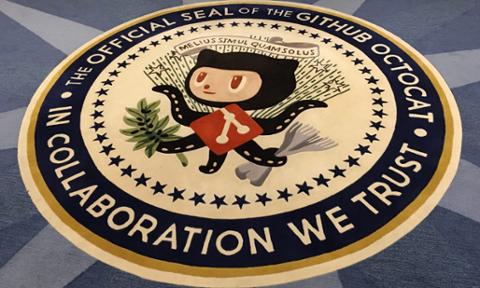GitHub is
where developers go to work on open-source projects, but it doesn’t have a good forum for open dialogue. With its most recent
acquisition of Spectrum, we could see a hard GitHub push into the conversational space. If you’re unfamiliar with Spectrum, you’re not alone. The upstart company (we’ll call it a ‘social network,’ but that’s not entirely correct) is fashioned after Stack Overflow, but organized into communities and interests in a way similar to Reddit. Like Slack (which it has an eerie resemblance to), Spectrum relies on channels... but those channels
act more like Reddit’s subreddit communities (Spectrum even calls its small networks ‘communities’). If you're a Ruby developer, for example, you might join a community like ‘Ruby’ or ‘Ruby on Rails’ (there’s also ‘Rails’). So why did GitHub buy a social networking startup? We’ll analyze.
Red (The Bad Stuff)
- This gives GitHub a lot of raw data about its users. Community-based interactions yield a ton of information. If you're privacy-minded, that's not a great thing.
- Spectrum is sparsely occupied. It’s the proverbial ‘ghost town.’ Developers might want to stick with Reddit or another platform.
- Anyone can create a community. That’s why there are three Ruby communities all essentially discussing the same thing, for example. That raises the possibility of excessive fragmentation.
Green (The Good Stuff)
- GitHub is a responsible company, and trusting them with more data doesn’t seem like the wrong option.
- Developers need a better way to communicate and work together, especially on open-source projects.
- This could streamline your workflow if it catches on.
[caption id="attachment_140550" align="aligncenter" width="2048"]

GitHub Offices, San Francisco[/caption]
Refactor (Our Take on GitHub Buying Spectrum)
If you joined Spectrum today, you’d think it was a waste of time. Communities are sparsely populated, and the interactivity level is
null. But that’s perhaps the brilliance of this acquisition. Spectrum is a lot like
Gitter, which is owned by GitHub competitor GitLab. Given Spectrum's light attendance so far, there won’t be much pushback from users if they dislike what GitHub does with their platform, and there’s tons of room for growth. Our bet is GitHub will simply weave Spectrum into its service proper. Rather than cobbling all issues and questions under the ‘Issues’ tab of a project, Spectrum would make working in open source more collaborative and communicative. When you communicate on the interwebz via a platform, you’re willingly providing data. That makes most a bit wary,
especially as Microsoft now owns GitHub, which now owns Spectrum, which means what you say via Spectrum or GitHub is now under Microsoft’s purview. The ‘big brother is watching’ narrative holds true, but Microsoft seems far more interested in using machine-learning models to provide better services, not sell ads, and that’s a plus in our book. Assuming Spectrum is woven into GitHub, we think it could be huge. It would allow developers to ask questions and get help without migrating to Stack Overflow. Within more popular ‘communities,’ Spectrum might even give developers cause to ditch Twitter, something many have been grumbling about for some time.
Mastodon was a curiosity for tech pros, but GitHub is a far more popular destination already; communities would be additive, and welcome. We should point out that neither Spectrum nor Gitter have large, robust communities. It seems a lot of the reason developers occupy those spaces is the hive mind around their particular disciplines commands it. Some of those developers might resist going all-in on Github, but these communities are also small enough that any disruption is negligible. (It’s also an easy ‘sell’ to
enterprise customers, since they can create their own communities.) All told, we like what this could mean for GitHub and tech pros, but Spectrum has to be applied correctly. If GitHub purchased it for some unique, underlying tech, but kills the service to get said tech, that’s a misfire. Hopefully, GitHub takes the community aspect of Spectrum and bakes it right into the main hub next to our pull requests and wikis. Anything short of that, and Spectrum risks becoming
another unheralded and unused GitHub service.
 GitHub Offices, San Francisco[/caption]
GitHub Offices, San Francisco[/caption]



